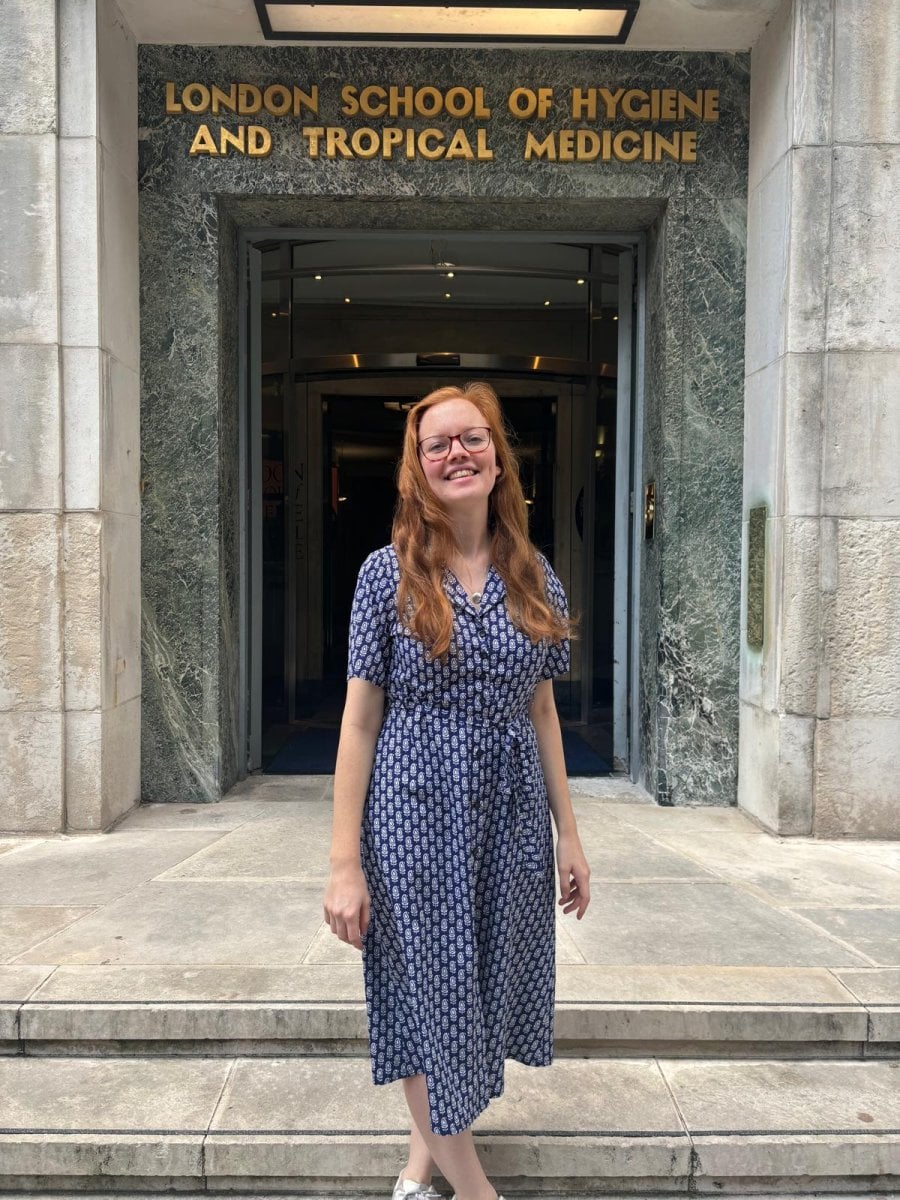
Can you briefly describe your research focus and the key findings of your PhD?
My PhD researched the genomic epidemiology of malaria on the Bijagós Archipelago of Guinea Bissau, focusing on both the parasite and the vector. I first investigated the genomics of Plasmodium falciparum, identifying any genetic polymorphisms associated with antimalarial drug resistance to produce a baseline profile of antimalarial resistance mutations in the area. This was the first time that P. falciparum on the islands had been sequenced, and I found mutations associated with chloroquine and sulphadoxine-pyrimethamine resistance: https://www.nature.com/articles/s41598-023-33176-1
Then I focused on the malaria vectors on the islands, which are from the Anopheles gambiae sensu lato complex. First, I used multiplex amplicon sequencing to identify which mutations associated with insecticide resistance were present in the mosquito population, and found mutations associated with pyrethroid resistance: https://parasitesandvectors.biomedcentral.com/articles/10.1186/s13071-023-06085-5
To see whether pyrethroid resistance was present on the islands, I then conducted phenotypic testing using WHO tube tests. Despite how isolated these islands are, I did find that the mosquito population on the main island was resistant to deltamethrin. I used whole genome sequencing to analyse the genetic differences between resistant and susceptible mosquitoes: https://www.nature.com/articles/s41598-024-73996-3
Finally, I studied Anopheles melas, an understudied malaria vector with a potential role in malaria transmission on the Archipelago, particularly during the dry season when the proportion of An. gambiae mosquitoes drops. I did the largest WGS study of this species that has been published to date and found that this species appears to split into two separate phylogenetic groups and carries none of the insecticide resistance mutations that are common to An. gambiae: https://parasitesandvectors.biomedcentral.com/articles/10.1186/s13071-024-06476-2
What motivated you to pursue a PhD in your field?
I’ve always been interested in the evolution of disease and in genomics. This PhD and my scholarship from the MRC allowed me to study both of these together and to help in the fight to combat this awful disease, which is still killing over 600,000 people every year.
What were some of the biggest challenges you faced during your PhD journey, and how did you overcome them?
My biggest challenge was definitely logistics. Shipping reagents and ants eating all of my mosquito larvae caused some major headaches and sleepless nights, but persistence paid off!
Can you share a particularly memorable moment or breakthrough during your research?
Conducting fieldwork in the Bijagós definitely produced the most memorable moments. From mopeding through the forest to reach remote communities to collecting and rearing larvae on Bubaque Island, this PhD was an unforgettable experience.
How did you balance your PhD work with other aspects of your life?
I have my extremely supportive husband to thank for that, who helped me stay sane. He also proposed to me halfway through my PhD, which was a pretty amazing boost! I also have a fantastic network of friends, researchers, and colleagues around me who have been really supportive and have taught me a huge amount. So I’m very lucky, and I try to keep things in perspective as much as possible.
What advice would you give to someone considering pursuing a PhD?
Go for it! And speak to your supervisors about what you’re interested in before you sign on, to make sure you’re going to be happy working with them for an extended period of time. Once you’ve started, one of the best things I did was to message different researchers in the first six months and ask for a half-hour chat about my PhD to discuss my proposed research questions. Getting different perspectives on my plan was a great way of expanding my ideas. Another piece of advice would be to build your network and make friends because you’ll need them! Finally, remember to enjoy it, because you’re able to choose what you want to work on each day, which is pretty rare.
What’s next?
Happily, I have now started working as a Research Fellow for Susana Campino and am continuing to study the genomics of malaria. I’m now working on another understudied malaria vector, Anopheles darlingi, and will hopefully be applying for fellowships in the near future
If you enjoyed this article and would like to build a career in global health, we offer a range of MSc programmes covering health and data, infectious and tropical diseases, population health, and public health and policy.
Available on campus or online, including flexible study that works around your work and home life, be part of a global community at the UK's no.1 public health university.
